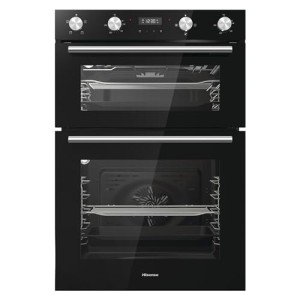This Is The Good And Bad About Integrated Cooker And Hob
The Rise of Integrated Cookers and Hobs: A Comprehensive Guide
In the modern-day kitchen, efficiency, style, and area optimization are key factors to consider for homeowners and striving chefs alike. Among the most significant patterns in kitchen style is the increasing popularity of integrated cookers and hobs. These appliances not only enhance the cooking experience however likewise raise the visual appeals of the kitchen space. This article explores the attributes, advantages, functions, and factors to consider surrounding integrated cookers and hobs, supplying readers with a comprehensive understanding of their benefits.
What Are Integrated Cookers and Hobs?
Integrated cookers and hobs describe cooking appliances that are built into the kitchen cabinetry, offering a smooth look and optimizing the use of space. Integrated appliances are designed to blend with the visual of the kitchen instead of sticking out like standard models.
Kinds Of Integrated Cookers and Hobs
Normally, integrated cooking appliances include:
- Integrated Hobs: These are cooktops that fit flush into the kitchen countertop. They can be gas, electric, induction, or a mix of these innovations.
- Integrated Ovens: Built straight into the kitchen cabinetry, integrated ovens can come as single, double, or multifunctional designs, offering varied cooking capabilities.
- Combination Units: Some designs integrate an oven and hob into a single home appliance, using a compact option for smaller sized kitchen areas.
Advantages of Integrated Cookers and Hobs
1. Space Optimization
Integrated cookers and hobs are perfect for small kitchen areas. By embedding the cooking appliances into cabinets, property owners can use their kitchen space more efficiently, leaving more room for meal preparation and motion.
2. Aesthetic Appeal
These appliances offer a streamlined and modern-day want to the kitchen. The ability to pick finishes and integrate them into the surrounding cabinetry produces a unified design that improves the total look of the kitchen.
3. Enhanced Functionality
Integrated cookers and hobs typically come with advanced technology functions, such as wise controls, timers, and cooking presets, improving user experience and making it possible for efficient cooking.
4. Boosted Safety
Lots of integrated hobs feature security measures such as kid locks and automatic shut-off features. This makes them much safer than traditional freestanding designs, particularly in households with children.
5. Increased Resale Value
Modern homes with integrated appliances often draw in higher resale worths. Prospective purchasers try to find smooth designs and contemporary conveniences, making integrated cooks and hobs a wise financial investment.
Features to Consider When Choosing Integrated Cookers and Hobs
When choosing integrated cookers and hobs, a number of functions ought to be considered:
1. Cooking Technology
- Induction: Provides quick and efficient cooking, easy to clean, and provides precise temperature level control.
- Gas: Offers standard cooking benefits with instantaneous heat however needs sufficient ventilation.
- Electric: Provides consistent heat and is offered in different designs.
2. Size and Configuration
- Oven Capacity: Should be enough for the home's cooking needs.
- Hob Size: Depending on the variety of burners/vessels required for synchronised cooking.
3. Control Mechanisms
- Touch Controls: Provide a sleek appearance and ease of cleansing.
- Knob Controls: Offer tactile feedback and are easy to use.
4. Finish and Style
Integrated cookers and hobs can be found in various finishes, consisting of stainless-steel, black glass, and even personalized choices to match cabinetry.
5. Energy Efficiency
Opt for energy-efficient designs that can save on energy expenses and lower ecological impact.
Maintenance and Care
To preserve the performance and longevity of integrated cookers and hobs, routine maintenance is crucial:
- Clean the surface areas: Regularly clean down the hob and oven surfaces to avoid residue accumulation.
- Check seals and gaskets: Ensure that oven seals are intact for efficient cooking.
- Service frequently: Schedule expert upkeep to keep the appliances in leading shape.
Frequently asked questions
1. What is the distinction between built-in and integrated cookers?
Response: Built-in cookers are created to be installed within kitchen cabinetry, whereas integrated cookers are produced to perfectly mix with the kitchen cabinetry for a more cohesive appearance.
2. Are integrated appliances more costly?
Answer: Generally, integrated appliances may have a higher in advance expense compared to freestanding systems because of their style and the setup requirements. However, they can use long-lasting savings in energy performance.
3. Can I install integrated cookers and hobs myself?
Answer: While some homeowners might have the ability to manage the setup themselves, hiring a professional is recommended to ensure appropriate fit and function, particularly for gas appliances.
4. Are integrated cookers and hobs simpler to clean up?
Response: Integrated hobs typically have less crevices, making them simpler to clean. However, the particular cleansing requirements will depend on the products used in the appliance.
5. What should Ovens And Hobs examine before buying?
Answer: Check the size of your kitchen space, cooking needs, energy effectiveness ratings, and compatibility with existing kitchen cabinetry.
Integrated cookers and hobs are ending up being progressively favored in contemporary kitchen areas, integrating performance with aesthetic appeal. By comprehending their advantages, functions, and upkeep requirements, property owners can make informed choices when selecting the ideal appliances for their cooking areas. As patterns in kitchen style continue to evolve, integrated cooking options will likely stay at the forefront of home development, assuring both usefulness and style.
